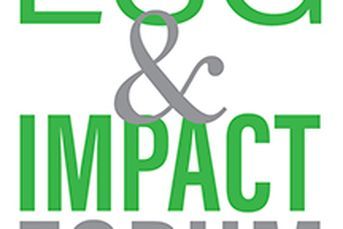So you think AML compliance is someone else’s problem
Few, if any, advisory firms handle cash, and most do business with long-term clients from their own communities.
Few, if any, advisory firms handle cash, and most do business with long-term clients from their own communities. For most advisors, therefore, it’s easy to assume that money laundering is an issue that only banks and large firms with an international clientele have to worry about.
Not so.
With the growing sophistication of international terrorist and criminal organizations, money-laundering is an issue that even the smallest broker-dealers and advisory firms must concern themselves with — not only for reasons of security and data integrity, but also because the Securities and Exchange Commission is making effective anti-money laundering (AML) efforts a priority.
In a speech to the Securities Industry and Financial Markets Association last year, Kevin W. Goodman, the National Associate Director of the Broker-Dealer Examination Program in the SEC’s Office of Compliance Inspections and Examinations, termed anti-money laundering “an often overlooked cornerstone of effective compliance.”
He said that AML includes far more than preventing money laundering, and includes the monitoring of activity that might indicate fraud, insider trading or trading-manipulation schemes. A weak AML program undermines the entire compliance effort, Goodman said, and lapses in AML can damage not only the firm where it occurs, but also the international reputation of the United States.
Citing an enforcement action against a major bank for AML lapses, Goodman said the institution ignored “the need to evaluate the risks of products and services offered, its customer base, and the countries from and to which monies flowed.” He said that conducting an overall analysis of the risk posed by a firm’s products and services is a critical step in implementing an effective AML program, which must employ resources commensurate with the risks involved.
Of particular interest to the SEC are the bank-like cash management accounts available through most broker-dealers. These accounts offer linked credit cards, debit cards, ATM access and wire transfers, and the SEC will hold those it regulates responsible for any money laundering activity that takes place through such accounts.
Given the SEC’s emphasis on the issue, and the increasing possibility of criminal and/or terrorist infiltration, even those advisors and advisory firms where individual domestic accounts account for virtually all activity must prepare and implement appropriate anti-money laundering metrics and procedures.
So just what are effective anti-money laundering programs?
The SEC has established a few criteria. To start with, firms must address any high-risk activities in which the firm or its clients engage. Firms also must have in place a customer identification program to obtain and verify all of the information (name, address, date of birth, identification number) required for each customer.
Any program adopted can’t be of the bolt-on, off-the-shelf generic variety. What’s more, firms can’t use boiler-plate language or standardized templates. Every AML program truly must be tailored to a firm’s customers, products, services, geographic locations or specific methods of how clients deal with the firm. Testing and training also must be customized.
If automated programs are used, firms must monitor those programs to ensure operational effectiveness and confirm that any technical fixes are appropriate. Firms also must be able to provide documentation of independent testing performed on a program’s effectiveness.
With criminals becoming more and more sophisticated, the SEC wants to make sure that all firms have effective anti-money-laundering procedures in place. For firms of all sizes, AML is a compliance issue whose time has come.
For more detail, download the Workiva white paper, Navigating the New Frontiers of Compliance.
Learn more about reprints and licensing for this article.






